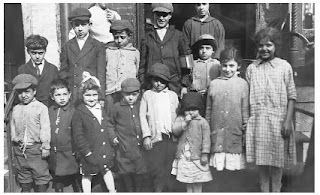Belgili Tanımlık Türk Dünya (The Turkish World)
 Oriental historians are quick to reverance the art and culture of the 18th-19th century Turkish world, but often times against the measure of European standards. I am not quick to disfigure Oriental historians as the purveyors of a skewed understanding of the East, but I will say that when Orientalists measure the Eastern standard against the Western one, they are bound to come to muddled conclusions. Turkish identity has been molded by centuries of insularity, apathy for Europe, and complete rapture of all things Ottoman. After all, they were the coffee drinkers, the casbah owners, the Sultans of Istanbul, the harem seekers, the viziers, the pashas, the whirling dervishes, etc. What could the east possibly learn from the west? The answer could be found in a scientific revolution that only the secular west could provoke.
Oriental historians are quick to reverance the art and culture of the 18th-19th century Turkish world, but often times against the measure of European standards. I am not quick to disfigure Oriental historians as the purveyors of a skewed understanding of the East, but I will say that when Orientalists measure the Eastern standard against the Western one, they are bound to come to muddled conclusions. Turkish identity has been molded by centuries of insularity, apathy for Europe, and complete rapture of all things Ottoman. After all, they were the coffee drinkers, the casbah owners, the Sultans of Istanbul, the harem seekers, the viziers, the pashas, the whirling dervishes, etc. What could the east possibly learn from the west? The answer could be found in a scientific revolution that only the secular west could provoke.Although science was always part and parcel to Islamic understanding (Al-Farabi, Al-Ghazzali, Al-Razi, the list goes on), it remained a static subject. Muslims did not invest in weaponry and technological advancement the way that Europe did in the 16th century. Instead, the Muslim world focused on administering their Sultanates, keeping their kingdoms peaceful, maintaining amity among dhimmis (Jews and Christians) and Muslims, and exporting raw materials as textiles, coffee, and sugar.

Portuguese and Dutch ascendancy in the 17th century granted European investiture of colonial satellites in places like Borneo and Pandang in the South China Sea, and Hormuz north of the Arabian Sea, and not to mention China and Japan. Perhaps the most important colonial satellites rested in the Caribbean and South America, where coffee and sugar could be produced and finished in half the cost it took to import it from the Ottomans.
By the 18th and 19th centuries, the Ottomans were growing more interested in Europe. In 1721, Mehmet Effendi, an Ottoman envoy was sent to France to learn French culture and society. He was so entranced by what he saw. He wrote, "Of all the cities I saw in France, there is none which compared with Bordeaux. Its buildings are very beautiful, its situation charming, its appearance agreeable...The Garonne is so wide by the city that it resembles the port of Constantinople and as the Atlantic is only 20 leagues away, ships of 40 cannon can come there to anchor..." (Saudi Aramco World: A Turk at Versailles). Of course, much earlier than the 18th century, Europeans had been sending embassaries to the Ottoman world. Their reasons for travel ranged from sincere interest to diplomacy and trade. Bernard Lewis, author of What Went Wrong? Depicts the naivite of the Ottomans as unskilled diplomats compared to the French. He also mentions that Ottomans lacked any interest in the European realms, mainly because their holy sites rested in their own territories.
The Ottomans did lack some level of raison d'etre when it came to military maneuvers, but did that make them backward or unscientific? Absolutely not. The mere fact that Ottomans engaged in military battles against Italians and Germans exemplified their passion for territorial sustenance. However, the fact that they focused more on importing technology from Europe instead of creating it themselves showed a reliance on the West that from the 17th century onward made them prey to European powers. By the 19th century, particularly the Imperial Reform Edict of 1856, the Ottoman world was engaged in internal restructuring known as Tanzimat. These reforms included the abolishment of the jizyah tax for dhimmis and the ban for dhimmis on employment of public and military service. By the mid-19th century, the Ottomans were modernizing, but not Westernizing. They adopted the modern elements of freedom and equality from the European world, but they still preserved their distinct Ottoman identity. Pan-Ottomanism would eventually fall prey to nationalism and the birth of the nation-state in the Middle East. By the 20th century, under Kemal Ataturk, Turkey had become a 'Western' nation and other countries as Iran would follow suit.
So here we are in the 21st century, the Middle East is still brewing with war, technology is still imported from the west, and science continues to challenge religious radicals. Perhaps the West cannot save the East from its own identity. It will take the East time to recover its dignity and reform its own identity without losing its cultural vitality. This perhaps can be attained not only by the will of God, but by the will of the people.
Sources:
Lunde, Paul. Saudi Aramco World: A Turk at Versailles, Nov./Dec. 1993
Aral, Berdal. The Idea of Human Rights As Perceived in the Ottoman Empire, Human Rights Quarterly 26 (2204)
Lewis, Bernard. What Went Wrong? The Class Between Islam and Modernity in the Middle East, 2002.



Comments